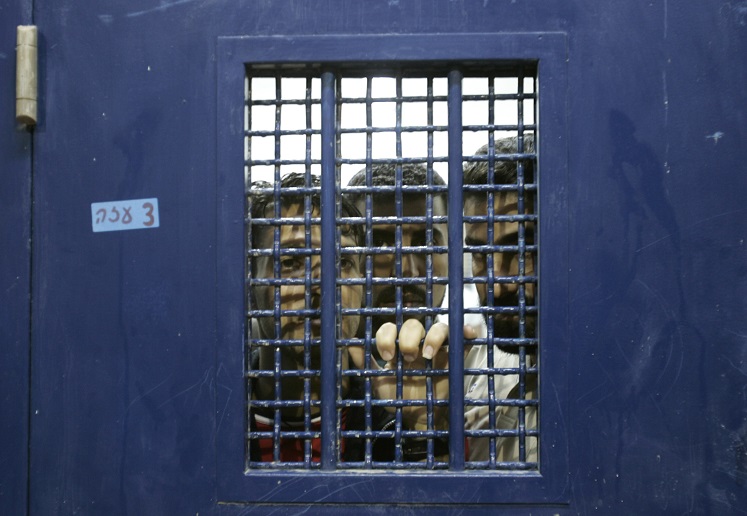More than 400 Palestinian prisoners in Israeli jails ended their mass hunger strike on April 15 after the Israeli prison service agreed to fulfill their demands. The key demands of the prisoners were the installation of landline phones inside prisons and releasing those kept in solitary confinement. Prison authorities also agreed to reverse the measures they had introduced in February, including the installation of mobile reception jamming devices. Prisoners had repeatedly complained of headaches because of these devices.
A statement by the Prisoners’ Committee of Islamic and National Factions said, “The prisoners’ movement confirmed that they reach[ed] a deal with the Israeli Prison Service removing electronic jamming devices and allowing them to have landlines in prison to call their families.”
The hunger strike, called the “al-Karama (dignity) 2”, began on April 5. A statement circulated in the local media had stated that more than 1,500 prisoners, including administrative detainees, were to join the hunger strike if their demands were not met.
The Commission of Detainees and Ex-Detainees Affairs had on April 10 revealed that the Israeli prison service had started transferring hunger strikers from Negev and Ramon prisons to isolation cells and other jails.
Israel currently holds 5,450 Palestinian prisoners, including 200 administrative detainees (individuals held without a charge), as per the latest figures from the Jerusalem-based Palestinian prisoners’ rights group, Addameer. Most of these prisoners are being held in jails in Israel, in blatant contravention of Article 76 of the Fourth Geneva Convention, which requires an occupying power to hold prisoners from an occupied land within that area. According to rights groups, more than 1,800 inmates are in urgent need of medical care, and close to 700 are suffering from serious and/or chronic illnesses.
The striking prisoners pointed out that they had been asking for the installation of pay phones in the jails for a long time, similar to the ones in jails where Israeli prisoners are kept. They also raised concerns that the jammers may cause illnesses.
Israel’s public security minister, Gilad Erdan, had earlier defended the jammers by claiming they were necessary to stop “terror activity” in prisons, without any providing any evidence to back his claims. Erdan had, in January, planned to make the living conditions of Palestinian prisoners worse. His proposals included rationing water supplies, reducing the number of family visits, removing cooking rights and revoking the prisoners’ access to television. His plan, however, did not proceed as it would have required parliamentary approval first.
The striking prisoners had also demanded that they be allowed visits from family members at least twice a month. Another demand of the prisoners was the lifting of all the new and old punitive measures that the Israeli jail authorities introduced against the Palestinian prisoners.
Prisoners on protests and hunger strikes are subject to harsh treatment from the jail authorities, including being placed in solitary confinement, getting transferred from one prison to another and even being force-fed. The United Nations special rapporteur on the right to health said in a 2015 statement that “Under no circumstance will force-feeding of prisoners and detainees on hunger strike comply with human rights standards.”





